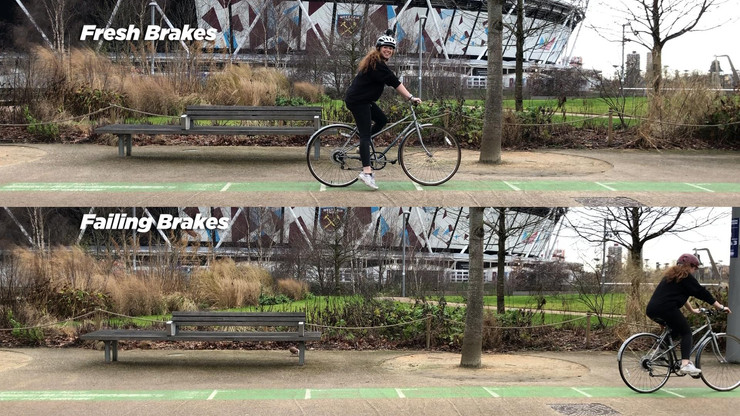Is Your Bicycle Safe for the Roads?
Fettle | Tuesday 28th January 2020 8:50am

Handlebars (Fettle) decided to run an experiment demonstrating the risk of cycling with worn brakes. The team took a bicycle with old brakes on the rear and measured its stopping distance. The brakes were then switched over to new ones and they cycled the exact same stretch again. The difference is both astonishing and terrifying..
The results?
With old brakes (simply on the rear), the bicycle took 7 metres to stop. The average car length is 4.5 metres. With new brakes, the stopping distance was reduced to 2 metres. The difference truly is enough to save a life.

Any facts, figures and prices shown in our blog articles are correct at time of publication.
